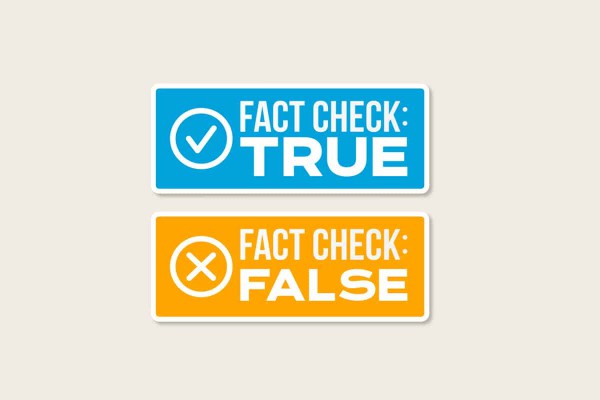The world of business finance is riddled with often misinterpreted terms, and central among them is the concept of what is payroll. Beyond the simple issuance of paychecks, payroll weaves a complex tapestry of compensation, benefits, and payroll compliance. But as businesses delve deeper into payrolling services, misconceptions are seen everywhere.
Myth: Payroll Compliance Is Just About Paying Employees
Payroll compliance is more than just distributing paychecks. Payroll compliance is about more than just ensuring timely and accurate salary disbursement. It’s a vast domain, encompassing the complexities of adhering to constantly changing tax obligations, meticulous record-keeping, and ensuring alignment with the latest regulatory norms.
The ever-shifting regulatory landscape demands that businesses be continually updated. Changes in tax laws, introducing new labor regulations, or updating existing ones mean companies must be proactive. Keeping accurate records and tracking hours, benefits, leaves, and overtime is not just an organizational need but often a legal requirement. Simplifying payroll compliance as merely “handing out paychecks” is a glaring oversimplification of its multifaceted nature.
Myth: Small Businesses Are Exempt from Payroll Compliance
There’s a lingering myth in the business world that small businesses, given their limited scope and scale, might be immune or exempt from payroll compliance. The thinking goes something like this: fewer employees, fewer complexities. However, this couldn’t be further from the truth. Whether a startup with a handful of employees or a medium-sized enterprise approaching a larger scale, every business is responsible for payroll compliance.
Specific regulations and laws differ based on factors like the number of employees, the business’s industry, or geographical location. For instance, some tax breaks or incentives might be available only to companies of a specific size. However, at the heart of it, the core elements of payroll compliance, such as adhering to tax laws, ensuring accurate payment processing, and keeping comprehensive records, are universally applicable. Much like their larger counterparts, small businesses must be proactive in navigating payroll regulations.
Myth: Payroll Compliance Is One-Size-Fits-All
While some might believe a standard, one-size-fits-all approach to payroll compliance exists, the truth is far more nuanced. The intricacies of payroll are influenced by several factors, including regional and local laws, unique industry standards, and the specific composition and needs of a company’s workforce. What applies to a tech startup in California may not hold true for a manufacturing unit in Georgia. This diversity in regulations means businesses must adopt a tailored approach, ensuring their payroll practices align with national standards and those specific to their operation’s location, industry, and employee dynamics.
Myth: Payroll Compliance Is Static
A common misconception among businesses is that a once-implemented payroll system remains unchanging. In reality, payroll is fluid and ever-evolving. Changes in labor laws, tax code updates, and benefit regulation amendments are just a few elements that make payroll a constantly shifting landscape. As such, staying compliant isn’t about setting and forgetting; it’s an ongoing endeavor that requires businesses to be proactive, informed, and adaptable to the changing regulatory environment.
Myth: Payroll Compliance Is a Cost, Not an Investment
Businesses, especially newer or smaller ones, often perceive payroll compliance as just another line item in their expenses, an unavoidable cost of doing business. This perspective, however, oversimplifies and undervalues the true importance of compliance. When approached strategically, compliance becomes an investment that can yield significant returns. Proactive and diligent compliance efforts stave off potentially crippling penalties and legal repercussions and protect a company’s reputation. A robust compliance framework ensures the smooth functioning of payroll operations, fostering trust among employees and stakeholders and laying the foundation for sustainable growth. Investing in payroll compliance, therefore, isn’t just about avoiding pitfalls—it’s about unlocking potential and driving business success.
Myth: Payroll Compliance Is a Once-a-Year Activity
It’s a widespread misconception that payroll compliance is synonymous with the annual tax season rush. Tax filing deadlines are critical, but they’re just the tip of the iceberg. Payroll encompasses so much more than yearly tax settlements. Each day presents its compliance responsibilities, from accurately logging daily time-offs to adjusting payroll in response to mid-year legislative changes. Regularly updating payroll to reflect changes in employee status, tracking overtime, and even ensuring proper documentation for new hires are all part of compliance. Recognizing payroll compliance as an ongoing, daily commitment is crucial for businesses aiming to stay on the right side of the law and maintain smooth operations.
Navigating the Nuances of Payroll Compliance
As businesses evolve and grow, so do their responsibilities, and payroll compliance stands out as one of the most vital yet complex among them. It’s more than just checking boxes or following a set routine; it’s about creating a resilient foundation for a business. Beyond the myths and misconceptions, compliance is about staying informed, understanding the intricacies, and ensuring that every aspect of the payroll process aligns with ever-shifting regulations. By being proactive, businesses can avoid pitfalls and set themselves up for success. In this age where regulations are in constant flux and the business landscape is ever-changing, staying ahead in the compliance game is not just an obligation—it’s a strategic advantage.
